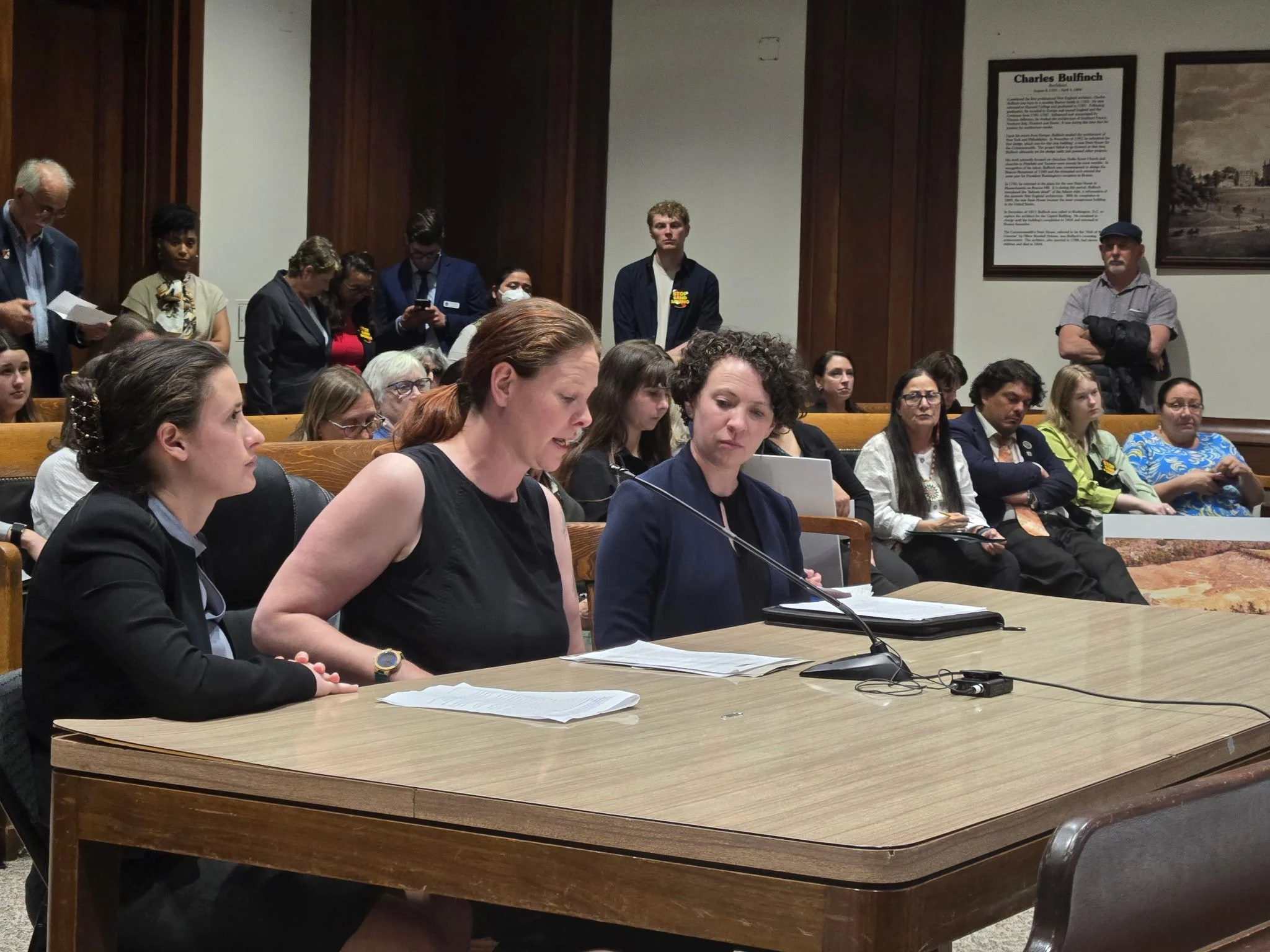June 3, 2025 testimony before the Joint Committee on Environment and Natural Resources at the Statehouse
Good afternoon! Hello Chair Rausch, Chair Barber, and members of the committee. Thank you for this opportunity to speak in favor of the suite of drought bills, specifically S.586/H.1003, filed by Senator Eldridge and Representatives Joan Meschino and John Rogers. I’m here to ask you to report these bills out favorably.
I’m Liz Green, director at Three Sisters, based in Ipswich and Wenham on the North Shore. We are a nonprofit community farm, growing fresh produce for our low-income, food-insecure neighbors in 20 cities and towns across Essex County, serving people from Haverhill to Gloucester to Salem.
Farms like ours invest in public health - community health - not just by growing and distributing nutritious food, but by using sustainable farming practices on our land. We know we are connected to our larger ecosystem through soils, air, wildlife habitat, and especially through the shared water system that we all depend on.
It’s a privilege to be here today with colleagues from across the state who work to advocate for and care for that shared water system. Dry rivers are not a natural ebb and flow of our local water cycle, they are a catastrophe. Drought for farmers is the same. Food can’t grow without consistent, regular water. We are lucky to live in a region where it still regularly rains most years, but two of the past four years we had a severe drought. At our farm, our well ran dry and we had to bring in water from off the farm, a significant expense and labor cost. Even with an outside water source, we lost whole successions of transplanted seedlings; we saw reduced yields on many crops and we lost plantings to diseases and pests, because they were weaker and less healthy. Birds and small wildlife poked holes or burrowed in our irrigation hoses to stay alive, which caused a series of leaks that devastated both our budget and the crops that needed that water. Plants can’t take up the nutrients they need from the soil without water. On the farm, everything is connected through water. Soils devastated from drought are also less resilient when it does rain - the water is more likely to run off rather than be absorbed. Flood years are more likely because droughts make our soils less resilient.
I’m here to remind us that farms are not separate from our ecosystem or our watershed: we can’t manage extreme weather alone. We can spend thousands of dollars a year on water-saving irrigation systems, or use organic mulches, or invest in expensive equipment to reduce tillage and preserve soil moisture and biodiversity, or deploy all the other tools in the toolbox for sustainable farming – but if the resources in our larger region are poorly managed (or not managed at all), what is the use?
We must build a networked, regional solution to climate problems like droughts. That’s why I’m here during one of the busiest times of the farming year, planting season, to be part of this conversation and I’m grateful to be included.
We need public resources for public health. That includes not just funds but coordination, and knowhow, and sharing information, and working together across artificial borders. Our farmland in Ipswich sits in the same watershed as our farm neighbors in Hamilton and Beverly - but each town or city manages their water completely differently. This is, to use a professional and scientific phrase: nuts. From flood years to drought years, we have to work together. With climate change, extreme weather events are becoming more frequent, not less, and farm livelihoods and community health is at risk.
It’s crucial for our survival as farms and hunger relief organizations trying to pay the bills, keep land in farming, and feed our communities, to work together to manage our precious and limited natural resources in the region, not just city by city or town by town. I urge you to support these bills to make meaningful change for farmers. Thank you for your time.

